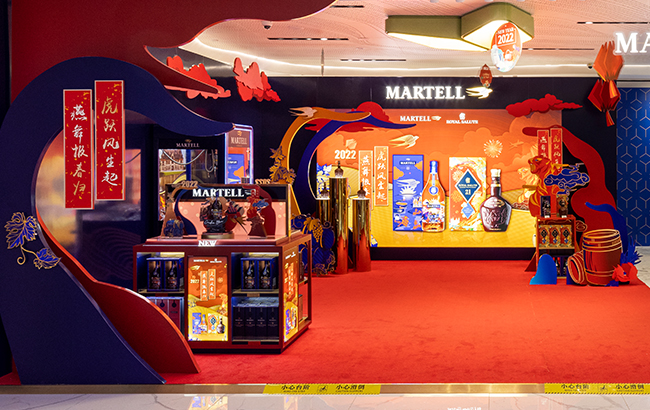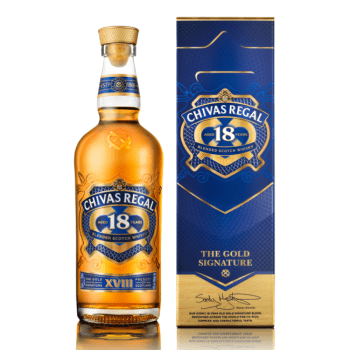China and US hinder Pernod FY sales
By Rupert HohwielerMartell owner Pernod Ricard posted a 3% fall in organic revenue in the year ending 30 June 2025, with China and the US taking the blame.

The French firm posted an organic revenue of €10.96 billion (US$12.8bn) in fiscal 2025, down by 5.5% (on a reported basis) on last year’s figure.
Declines in major markets China and the US were said to have negatively impacted the company’s performance. Despite the dip in sales, the company did see a volume recovery of 2%.
Profit from recurring operations dipped organically by 0.8% to €2.9bn (US$3.4bn).
Looking across regions, sales in the Americas dropped by 3% organically. Excluding the US, organic sales were up by 2%.
US sales declined by 6%, dragged down by ‘subdued consumer confidence and economic moderation’. Pernod expects this to continue into the next year with uncertainty around tariffs.
In Canada and Brazil there was ‘good growth’, while in Mexico there was a low single-digit decline but a gain in market share for whiskies.
In Asia, the two main markets for Pernod Ricard saw contrasting results.
China sales sank by 21%, led by declines for Martell Cognac and the firm’s Scotch brands. A ‘strong decline’ in China is also expected to begin fiscal 2026.
In India, sales were up by 6%, led by premiumisation trends in the country. There was double-digit growth for Royal Stag whisky, as well as for global brands such as Jameson Irish whiskey, which was highlighted as the number-one imported spirit brand in India.
Pernod noted that excise policy changes in the state of Maharashtra are expected to negatively impact India sales in fiscal 26, especially for the first quarter.
The group’s performance in global travel retail also fell by double digits (by 13%). The suspension of Cognac imports in China duty free due to the anti-dumping investigation was cited as a leading factor, followed by weak showings in South Korea and Taiwan.
Pernod expects this space to return to growth in the next fiscal year when Martell is able to re-enter China airports in the second quarter.
Global sales of Martell plummeted by 20%, led by a sharp decline in China.
Meanwhile in Europe, sales were down by 2% with growth in France, but declines in Germany and Spain.
Brand performance
Pernod’s Scotch arm, Chivas Brothers, fell by 3.4% for the full year.
The division’s core brands include Chivas Regal, Ballantine’s, Royal Salute and The Glenlivet.
Chivas Regal was up by 2.3%, led by a strong showing in Turkey, while Ballantine’s was stagnant (up 0.2%). The Glenlivet (down 4%) and Royal Salute (down 18%) were both in decline.

Chivas Regal and Ballantine’s both focused on innovation last year with Ballantine’s releasing Sweet Blend and Chivas Regal launching Extra Smoky Cask Selection.
The division’s performance in emerging markets also gave an indication of Scotch whisky’s bright future away from traditional consumption bases – Africa and the Middle East soared by 22%, Brazil rose by 7% and India was up by 1%.
Chivas Brothers chairman and CEO Jean-Etienne Gourgues, who also took on the role of executive vice-president for Pernod Ricard’s global brands earlier this month, said: “Our FY25 performance shows pockets of positivity, despite a difficult global trading environment and geopolitical volatility impacting the Scotch whisky industry.
“What remains clear however, is that Scotch can and will continue to hold its resonance with a global audience, despite these conditions. It is fantastic to see Chivas Regal and Ballantine’s back to value growth and, looking ahead, we continue to be well positioned in the market thanks to our diverse portfolio.
“As a business, we remain optimistic about the long-term opportunities for Scotch, even as we continue to navigate the challenges of today’s market.”
Outside of Scotch, some of Pernod’s other core brands gave reason for cheer. Jameson was up by 3%, Absolut Vodka by 2%, Kahlúa liqueur by 7% and Bumbu rum by 24%. The latter grew by double digits in France, Canada and the UK.
Havana Club (1%) and Beefeater (3%) also posted rises while rum-based liqueur Malibu fell by 10%.
RTDs delivered 7% growth. The company expects to triple its RTD footprint in the US over the next three years and has recently released a RTD for Ricard, with a crossover canned cocktail line for Malibu with pineapple juice brand Dole slated for early next year.
What the future holds
Pernod forecasts fiscal 2026 to be a transition year with an expected decline in the first quarter as inventory adjusts in the US, and consumer demand continues to soften.
The company will also continue to focus on cash generation with strategic investments below €900 million (US$1.48bn).
Pernod’s active portfolio management has seen it drop a number of ‘non-strategic, non-core brands’ in the past two years, including its Nordic brands, Irish whiskeys Knappogue Castle and Clontarf, and Indian whisky Imperial Blue – to focus on its premiumisaion push.
The group will also continue to harness partnerships for its key brands to boost cultural relevancy, as it has done in the past year for Chivas Brothers with Ferrari Formula One, Jameson with Major League Soccer and Kahlúa with Dunkin’.
For fiscal 2027-2029, it is aiming for organic net sales growth between 3% and 6%.
“We are confident in our strategy, in our operating model and in the engagement of our teams, to deliver sustainable value growth over time,” the company added.
In June, the Paris-headquartered company announced plans to restructure its business into two divisions, which will result in job cuts.
Related news
Pernod Ricard takes SIP Supernova hospitality competition global
